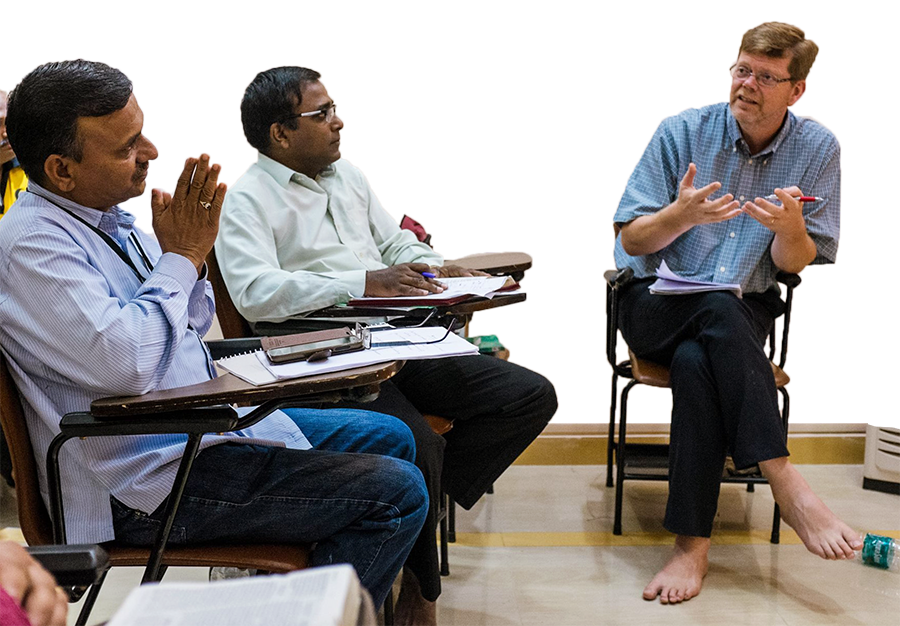A faith that influences all of life will have more than one meeting place

Paul Windsor, right, trains UESI and YWAM staff in preaching during a course in Indore, India.
Paul Windsor is the Director of Langham Preaching and former Principal of Carey Baptist College. He is now based in India, where he teaches homiletics and coordinates the training of church leaders around the world. Paul was also a student leader in EU during his university days, and is a past TSCF vice president.
Much of your life has been devoted to training church leaders. Why has equipping the church been such a priority for you?
The local church is central to the purposes of God in the world. Leaders are central to the effectiveness of those local churches. It is that simple. But with “local church” I am thinking as much of the church scattered into vocations for mission as I am the church gathered into worship services for ministry. And with “leaders” I am thinking as much of those who exert influence in informal settings, as those who fill more formal appointments in the church. When these more spacious understandings are in place, making the training of church leaders a priority is both logical and easy.
In what ways have you seen those whose 9-to-5 lives are spent in secular vocations best serve the church?
They are the church and in those vocations they can be serving the mission of God. The sacred:secular divide is unhelpful. When these folks target being “full of grace and truth” in the workplace and when they commit to living distinctive lives with distinction among their colleagues, they are inhabiting mission’s front lines. Such people are to be honoured, even celebrated, in the church. As Chris Wright expresses it, “People don’t go to church on Sundays to support their pastors in their ministry; the pastor goes to church on Sundays to support people in their ministry.”
Students’ church homes are often short-term and their communities can be transitory. Do you have any strategies for them to serve others and be cared for and held accountable themselves, despite these obstacles?
I used to play and coach basketball. The game is evolving. Coaches often revert now, rather surprisingly, to “small-ball” with a much shorter line-up on the court. Amidst all the busyness and mobility, churches and students alike do well to go small. Think in terms of discipleship and mentoring, hospitality and Bible studies – and aim at a deeper work in a fewer number.
Students: Aim to take someone with you in your heart when you leave.
Churches: Aim to keep someone in your hearts when they leave.




